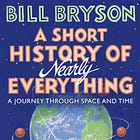Matthew Walker's Why We Sleep presents a compelling case that sleep is not a luxury or biological quirk, but rather one of the most important factors for human health, performance, and survival. The UC Berkeley neuroscientist and sleep researcher argues that modern society's sleep deprivation crisis is literally killing people and destroying their quality of life.
Walker begins by establishing sleep's evolutionary importance. Every species studied sleeps in some form, despite sleep making animals vulnerable to predators. This universal need suggests that sleep provides benefits so crucial that they outweigh the obvious survival risks. Walker explains that sleep serves multiple vital functions: consolidating memories, clearing toxic waste from the brain, regulating emotions, and maintaining immune function.
The book reveals the devastating consequences of sleep loss through striking examples. Walker describes how the annual transition to daylight saving time, which robs people of just one hour of sleep, correlates with a 24% increase in heart attacks the following day. Similarly, countries that "gain" an hour when clocks fall back see a 21% decrease in heart attacks. This demonstrates how even minimal sleep disruption affects cardiovascular health on a population level.
Walker's research on memory consolidation shows that sleep acts like a "save button" for the brain. He describes experiments where participants learned new tasks, then either slept normally or stayed awake through the night. Those who slept showed significant improvement in performance the next day, while the sleep-deprived group actually got worse. During sleep, the brain transfers information from temporary storage areas to long-term memory, a process that simply cannot occur while awake.
The author explores how different sleep stages serve distinct purposes. REM sleep, when most vivid dreams occur, processes emotional memories and enhances creativity. Walker shares how Kekulé discovered the structure of benzene after dreaming of a snake biting its own tail, and how Paul McCartney composed "Yesterday" after hearing the melody in a dream. Non-REM sleep, particularly deep sleep, focuses on factual learning and physical restoration.
Why We Sleep addresses widespread misconceptions about sleep needs. He debunks the myth that some people can function well on minimal sleep, explaining that short sleepers simply lose awareness of their impairment while their performance continues declining. He compares sleep-deprived driving to drunk driving, noting that being awake for 19 hours produces impairment equivalent to being legally drunk.
The book examines sleep's role in physical health through sobering statistics. People sleeping less than seven hours nightly have significantly higher rates of cancer, with the immune system's cancer-fighting cells dropping by 70% after just one night of poor sleep. Walker describes how sleep deprivation disrupts hormones controlling hunger, leading to weight gain and diabetes, and how it accelerates aging at the cellular level.
Walker critiques modern society's relationship with sleep, calling it "the greatest public health challenge we face in the 21st century." He describes how artificial light, particularly blue light from screens, disrupts circadian rhythms by suppressing melatonin production. The author shares his own experience of removing all screens from his bedroom and installing blackout curtains, changes that dramatically improved his sleep quality.
The book offers practical advice for better sleep hygiene. Walker recommends maintaining consistent sleep and wake times, keeping bedrooms cool (around 65-68°F), and avoiding caffeine late in the day since it can remain in the system for eight hours. He suggests that afternoon naps should be limited to 20 minutes to avoid interfering with nighttime sleep.
Walker concludes with urgent warnings about societal sleep loss. He argues that chronic sleep deprivation contributes to everything from Alzheimer's disease to mental illness, and that addressing the sleep crisis could prevent more suffering than almost any other public health intervention. His message is clear: sleep is not time lost to unconsciousness, but rather the foundation upon which mental and physical health depend.
Get the book : India | USA | UK
Did you read our book post last week?
The Code Breaker
The Code Breaker by Walter Isaacson is a riveting narrative that delves into the revolutionary world of gene editing, with Jennifer Doudna, a pioneering scientist, at its forefront. The author illustrates the significance of groundbreaking discovery of the CRISPR-Cas9 gene editing tool, by explaining how it works, using the analogy of a word processor, where the "find and replace" function allows scientists to edit genes with unprecedented precision. This innovation has opened up new avenues for treating genetic diseases, improving crop yields, and even potentially bringing back extinct species.
Check out the previous books we’ve covered:







Does the book have any specific content on sleep patterns of young people, i reckon young, mostly urban, people start sleeping rather late starting around teenage and keep this up as long as their body holds?